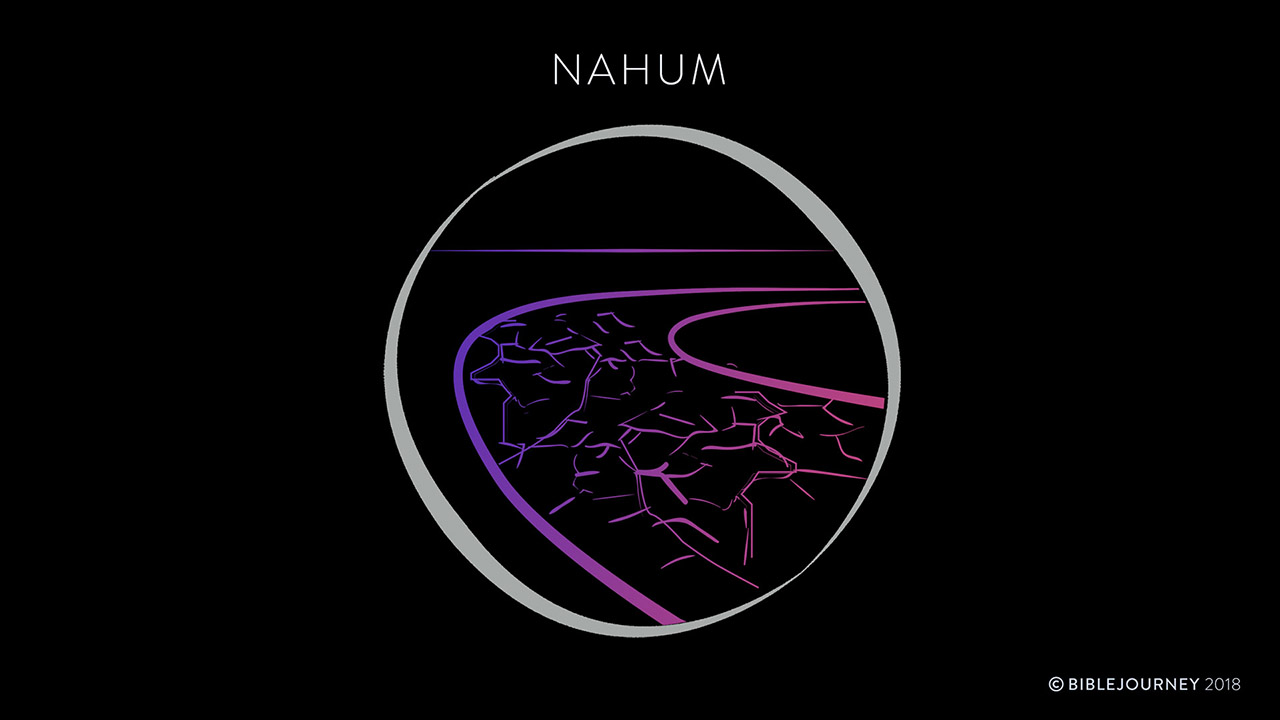Journey Through Minor Prophets, Part 2نموونە

Intro
Nicole introduces this course in which several prophets speak to Israel and Judah first and then address to the kingdoms that overwhelmed them—the Assyrians and the Babylonians—empires which each cast a massive shadow over the ancient Near East and brutalize and demoralize every nation they conquer.
You’ll learn a lot about trusting God today by understanding the kinds of choices our spiritual ancestors made during this desperate century.
Intro
Nicole introduces this lesson in which God’s people wished for his vengeance on the arrogant, abusive Assyrians, who deliberately humiliated Israel on the world stage. The prophet Nahum will speak to a people who endured both suffering and shame.
Nahum: In the Text
Nahum’s name has something to do with the message of his book. It combines what Israel wants for herself and for her enemies.
A Symbol for Nahum
While God appointed Assyria to take over Israel, this cruel nation did what it always did—it took things too far. They terrorized the people, systematically murdering many and repopulating captives throughout the empire. One of their central tactics for conquering cities was to dam up water sources so inhabitants would either starve or surrender. This was an exceptionally cruel tactic, even for the ancient world. We’ll discuss this more Behind the Text.
Nahum prophesies that Assyria’s water will be dammed up and diverted to the peoples they’ve terrorized, including Israel. They will become victims of their own brutality.
The river gates are thrown open
and the palace collapses
It is decreed that Nineveh
be exiled and carried away.
Her female slaves moan like doves
and beat on their breasts.
Nineveh is like a pool
whose water is draining away.
"Stop! Stop!" they cry,
but no one turns back.
Nahum 2:8 (NIV)

Nahum’s Name
Preparing for the Siege
Are you better than No-amon,
Which was situated by the waters of the Nile,
With water surrounding her,
Whose rampart was the sea,
Whose wall consisted of the sea?
… Draw for yourself water for the siege!
Strengthen your fortifications!
Nahum 3:8, 14 (NASB)
The city of “No-amon” is the ancient name of Thebes in Egypt. No-amon was known as a nearly siege-proof city in the ancient world. Its position on the Nile gave it easy access to water and also allowed its inhabitants to fish for food under siege. As the verse suggests, the Assyrians eventually found a way to cut off No-amon’s water supply, and once this happened, No-amon surrendered quickly.
Nahum predicts that the same strategy will be used against Nineveh, Assyria’s own “siege-proof” city. This is a prophetic taunt against an arrogant empire. The theological rationale is that YHWH regularly brings justice in the form of taste-your-own-medicine retribution.
دەربارەی ئەم پلانە

Have you ever wished for a Bible study that could take you beyond surface-level reading? If so, get ready for our journey through Minor Prophets, Part 2! You'll get to immerse yourself in Scripture (by looking at key terms and ideas), explore what's behind it (by learning historical-cultural background), and also discover its impact by considering its implications, not only for you, but for the global church. Let's dive in!
More
پلانە پەیوەستەکان

GRACE Abounds for the Spouse

POWER UP: 5 Days of Inspiration for Connecting to God's Power

Back to School, Back to You

Letting Go and Trusting God

Battling Addiction

2 Chronicles | Chapter Summaries + Study Questions

Spirituality and Prayer Life in the Ancient Faith

Journey Through the Minor Prophets, Part 3

Journey Through Psalms & Song of Songs
